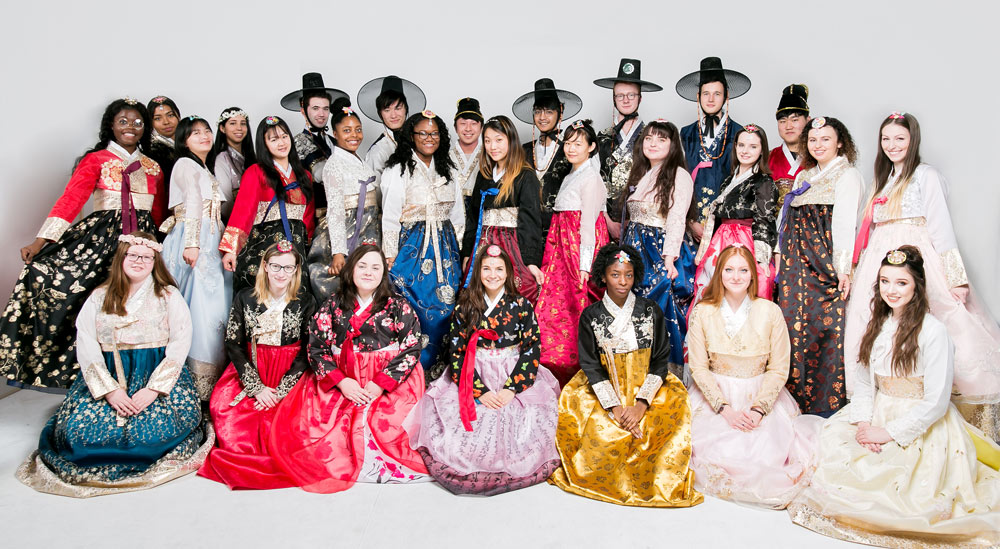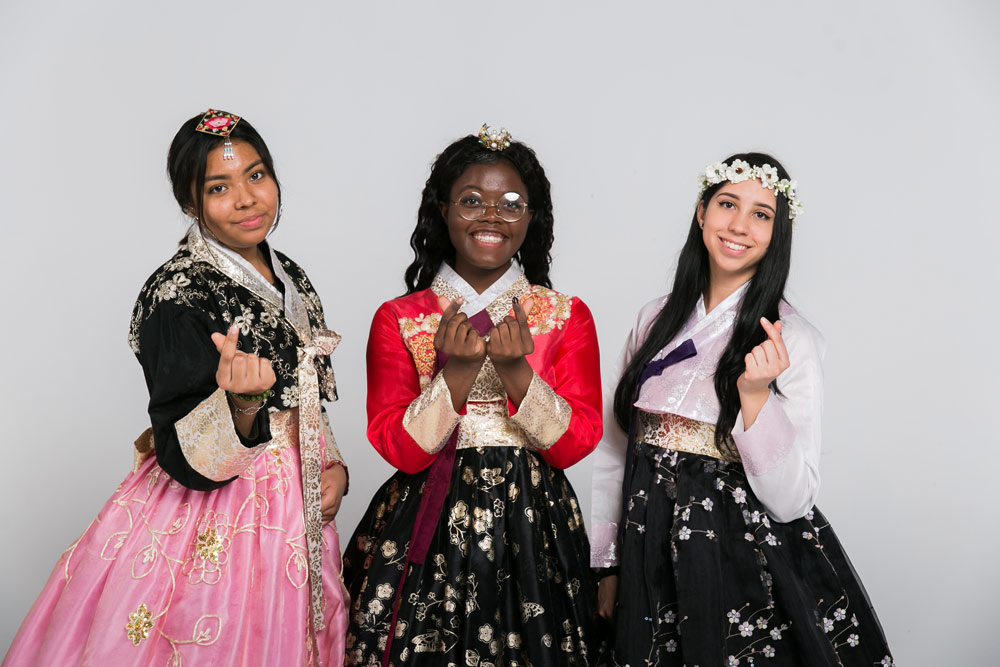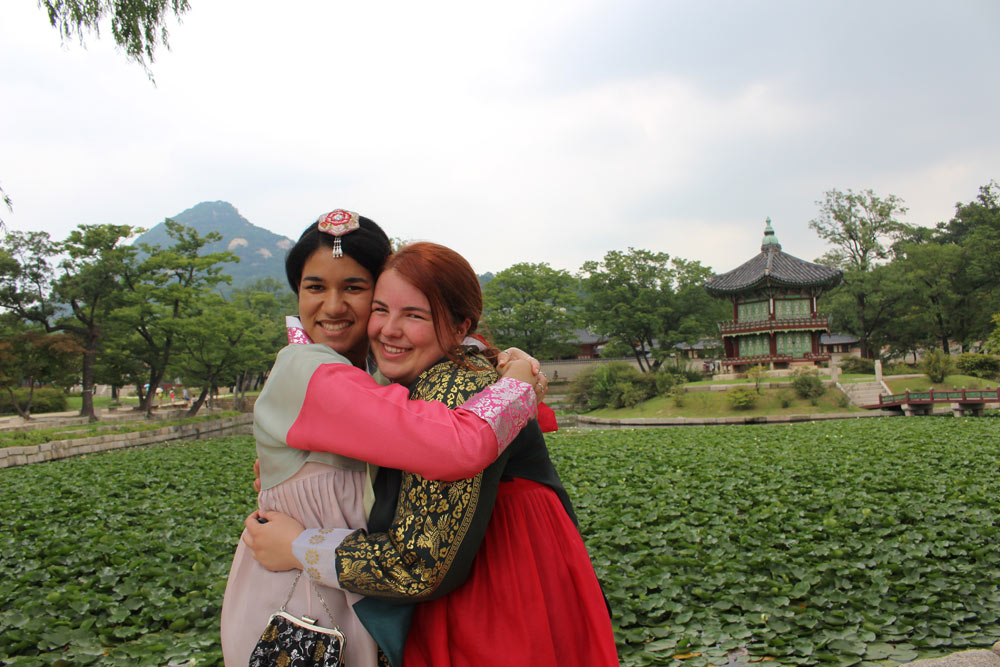While traveling internationally, it’s always important to learn about and respect the culture of the country you’re visiting. A massive part of this respect is understanding the difference between cultural exchange and cultural appropriation.
Cultural Appropriation vs. Appreciation and Exchange
The concept of cultural appropriation can be confusing and is often mistaken for cultural appreciation or exchange. While some see a distinct separation between the two, the lines can also easily become blurred. The main difference between appropriation and appreciation is maintaining respect for the culture in question. (If you’re ever unsure, politely ask – people are often happy to share their heritage with those who are genuinely interested!)
A common example of this fine line is donning traditional or national clothing.
For instance, the national dress of South Korea is called hanbok. It is uniquely Korean and is historically and artistically significant to Korean culture. For people who aren’t Korean to learn about and wear hanbok out of respect via invitation, is a form of appreciation and cultural exchange. To wear it for Halloween and music festivals or altering it to suit western standards and ideals, but calling it by the same name, is appropriation.
See the difference?

Wearing a hanbok While in South Korea
As part of our study abroad orientation in Seoul, students have the opportunity to try on hanbok so we asked the TEAN team in Seoul what they thought about students trying on the traditional dress.
For Koreans, seeing foreign visitors in their national dress is often a cause for pride. It’s showcasing their culture and is something that’s also promoted by the Korean Board of Tourism. hanbok is also a common gift to foreigners as a token of friendship.
TEAN’s Korea Resident Director, Sandra Durinick, said that, “While we include trying on hanbok to promote appreciation and understanding, we know it is important to ensure that all of the students are on the same page as us before going into this event. During orientation, we explain the history, tradition and modern use of hanbok, while also talking very directly about respect. We specifically tell the students that though hanbok rental is a common occurrence in Korea, it is done for the admiration and appreciation of the traditional clothing and is not to be treated disrespectfully. I have felt that through this experience, our students have gained a deeper love of the beauty of hanbok and what it represents, which might not be possible from a simple viewing.”

Korea is becoming one of the leading countries in contemporary fashion design and hosts many foreign students that are interested in or studying fashion. The hands-on experience with hanbok allows students to understand the evolution of Korean fashion and the influences that hanbok have on modern design.
One of our Resident Assistants also had this to share: “As a Korean I feel proud of hanbok when I see foreigners wearing it. Also, I’m happy to see foreigners eat kimchi. When they are interested in learning and experiencing Korean culture, I think it is because they like and appreciate it. That makes me proud of being a Korean.”
“During every orientation I have a short Korean class with our students. They do their best and enjoy trying to speak Korean. I think wearing hanbok is in the same context with trying to learn Korean. Hanbok is a part of Korean culture. I don’t think wearing hanbok is different from other Korean traditional cultural experiences such as calligraphy, Korean cooking class or temple stay.”

All cultural traditions carry with them a historical sense of national pride, so it is extremely important to take that into account when traveling to foreign countries.
Naturally, one of the main points of studying abroad is to immerse yourself in a new place, culture and set of customs – the key is to focus on truly trying to understand the roots of the culture and share in a mutually beneficial exchange. Not only will locals appreciate your respect, but you will open yourself up for a far more genuine and positive experience!
Contributors: Shannon Diegel, Korea Program Manager and Sandra Durinick, Korea Resident Director
Explore study abroad programs in South Korea. Have a question? Ask it here.







